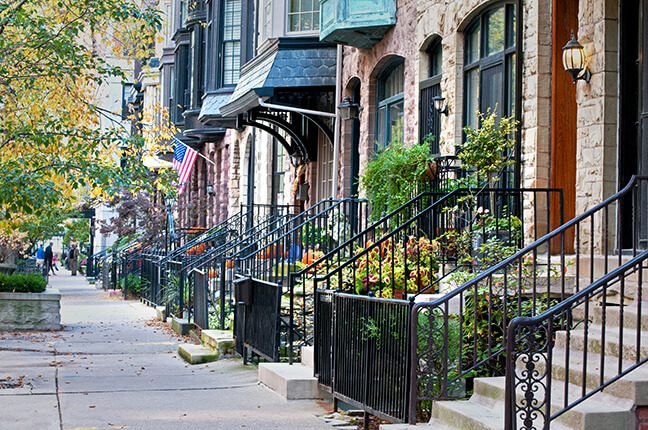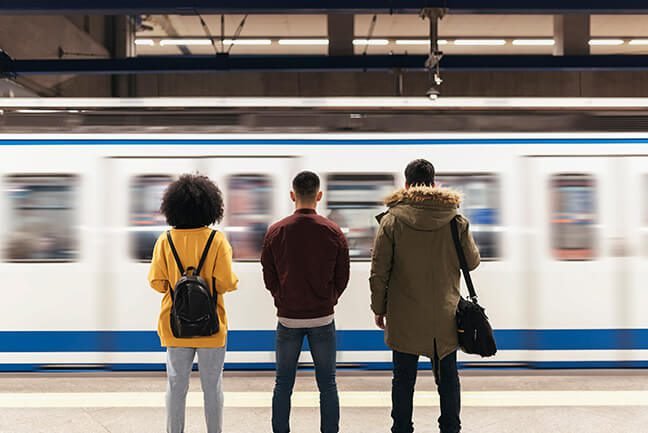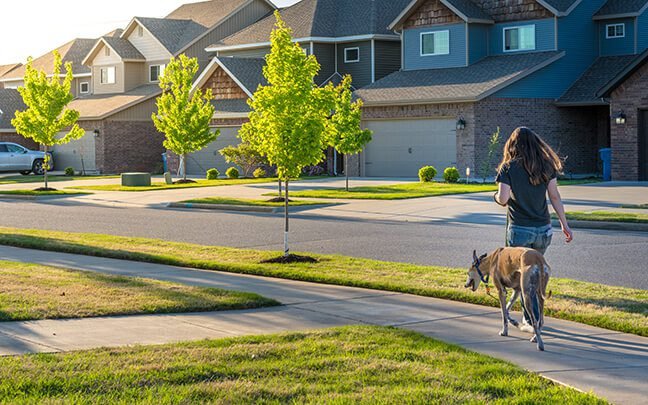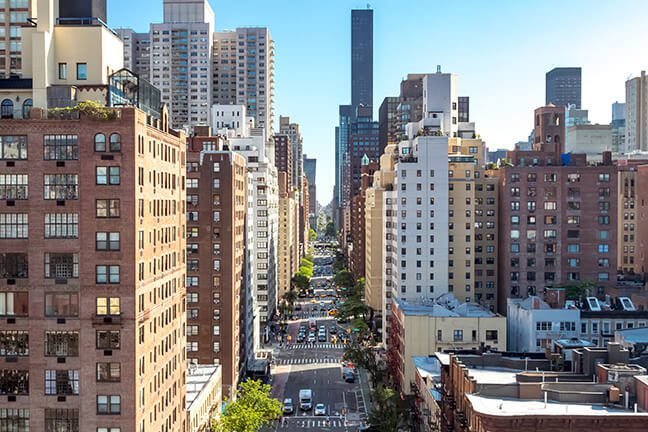Are you moving to a big city in the USA? If so, you’re in for an exciting adventure! However, there are a few things you should know before you make a move.
This blog post will share 11 tips on moving to a big city in the USA. We’ll cover everything from preparing for your move to finding housing and settling into your new community. So whether you’re moving to New York City, Los Angeles, Chicago or another large city, read on for advice that will help make your transition go smoothly.
Metropolitan Cities in the U.S.
Large cities in the U.S. are a mixture of high-rise and low-rise apartments, condos and even single-family homes. Costs and level of safety can vary between neighborhoods so it’s important to do your research first.
Cities within cities
Cities are also divided up into different sections and can have official names (like New York and the 5 boroughs) while some areas may also have nicknames. Sometimes these borders are what separate areas with great school districts and safe neighborhoods and areas with higher crime rates and poorer living conditions.

Preparation: Research Potential Neighborhood
When you’re moving to a big city, it’s important to do your research and choose the right neighborhood for the benefit of you and your family. You should consider things like the cost of living, commute times, schools and safety when making your decision.
If you have friends or family who live in the city, ask for their thoughts on different neighborhoods. Someone with actual experience living there is always a good place to start your research.
You can find places to either rent or purchase at locations such as:
Many of the properties listed on real estate websites have contact information of agents who are experienced in working with out-of-area clients. They can provide virtual home tours, so you can see the homes without having to travel there.
Preparation: Learn About the Cost of Living
Before moving to a new city, it’s important to learn about the cost of living to budget accordingly. In general, big cities tend to have a higher cost of living compared with smaller towns, so be prepared to pay more for things like rent, food, and transportation. Additionally, many cities charge high taxes on their residents, so be sure to factor that into your budget.

Preparation: Get Familiar with the Public Transportation System
If you’re moving to a big city, there’s a good chance that you won’t need a car since most cities have comprehensive public transportation systems. Before you move, take some time to familiarize yourself with the different transportation options in your city so that you can get around easily once you arrive.
Public transportation in most big U.S. cities allow you to use monthly or prepaid/debit cards, so you won’t need to carry small changes with you.
Preparation: Finding a Touch of Back Home
What’s great about larger cities is that you can often find different areas where immigrants have set up stories and restaurants. You can search for “Little Italy near me”, “Chinatown near me”, or whichever ethnic groups you are looking for. Stores and restaurants will be in this area, giving you access to your home country’s foods.
Preparation: Professional Movers
The cost of moving to a new country is often much higher than moving within your own country. There are extra things to consider.
- Immigrating is expensive – Do you really need all your furniture?
- Appliances may not survive the transit.
- Children’s toys can be replaced
- Clothes can be donated and replaced.
Most items can be replaced so you should travel and move as “light as possible”. This will lower your moving costs and stress on tracking where everything is.
You want to find movers in your overseas town that provide “door-to-door” service and quote correctly. They will most likely work with an overseas partner. Make sure they will handle all customs clearance and local delivery.
Better ones will have online portals where you can track your cargo.
Get everything in writing.
Make sure you have the U.S. side’s local contact information before you leave.
There are plenty of horror stories about goods being stuck in customs and delay charges piling up because movers didn’t handle customs clearance correctly.
A moving company is the one expense where the cheapest might not be the best.
You are going to be stressed adapting to your new country. You don’t want the added burden of dealing with U.S. customs or missing boxes.
Delivery Times
In most cases it will take a minimum of several months for your things to arrive, so make sure to have your most critical items in your luggage when you travel over. These can be your official documents, proof of citizenship or visas, financial information etc.

Once you move in: Joining hobby groups & sports clubs
One of the fastest ways to make new friends is to join a hobby group or sports clubs: gym, yoga studio, knitting classes. This is a great way to meet people with similar interests and hobbies, and it’s also a great way to stay active.
Most major cities have plenty of different clubs and gyms to choose from, so take some time to explore your options before you decide on one.
Once you move in: Learn the way of the land
Once you’ve moved into your new place, it’s time to start exploring your new city. Walk or bike around and get familiar with your surroundings. Check out all the different neighborhoods and find out which ones you like best. Visit local parks and attractions, and try out different restaurants and shops.
Once you move in: Get involved in your community
Another great way to adjust to life in a new city is to get involved. This can mean volunteering for local organizations, attending local events, or even just getting to know your neighbors. In addition to exploring your new city, it’s also important to find things to do in your free time so you don’t get bored. If possible, try to find activities that interest you so that you can make the most of your time off from work or school.

Once you move in: The Big City Job Market
An advantage of city living is access to many job opportunities. No matter your education level, experience, or age, there are options.
You can find a full-time or a part time job with just about any schedule you can imagine.
City life can be fast-paced and many of these jobs will be the same way. Luckily, even if you don’t drive, the city’s public transit system will have routes to get you to and from work.
Telecommuting
During COVID, telecommuting or “work from home” opportunities expanded greatly.
While this can cut your commuting costs and times, it does limit your chances to make friends and meet new people.
As just arriving in the U.S., your goal is to adapt to your new home. Try to find work that will get you out of the house or apartment to meet more people.

Once you move in: Learn English
If you don’t already speak English, it’s important to start learning as soon as possible. Not only will this make it easier for you to get a job and communicate with people in your everyday life, but it will also help you feel more connected to your new home.
Once you move in: Be prepared for culture shock
Moving to a new city can be an exciting experience, but it can also be overwhelming at times. Be prepared for culture shock by keeping an open mind and being patient as you adjust to your new surroundings.
Sounds Great, I'm Ready
If you’re preparing to immigrate to the United States, or have recently arrived, congratulations – you’ve made an amazing decision that will open up a world of opportunities for you and your family.
Moving to a big city can be exciting and full of new experiences, but it’s also important to remember that it takes time to adjust. Once you’ve settled into your new life, be sure to get involved with your community, whether it’s through work, volunteering, or taking classes.
And don’t forget to take some time for yourself and explore all that your new city has to offer.
Welcome to big city life in the U.S.A., we hope you enjoy everything it has in store for you!

Wait, Big City Life is Not for Me
Is city life not for you? The U.S. has many other options. Maybe you prefer a rural setting, small towns, or something in the middle like the suburbs?
Rural Area Living
Looking for lots of land and fresh air? A slower pace of life? Love the outdoors. You may want to look at rural locations for your next home.
Small Town Living
Want that sense of community where everyone knows your name? Small town living may be what you are looking for.
The Suburbs
Moving to the suburbs provides a middle-of-the-road option between city and country life.
That’s what’s great about the U.S. there are so many options available for you to choose from.

